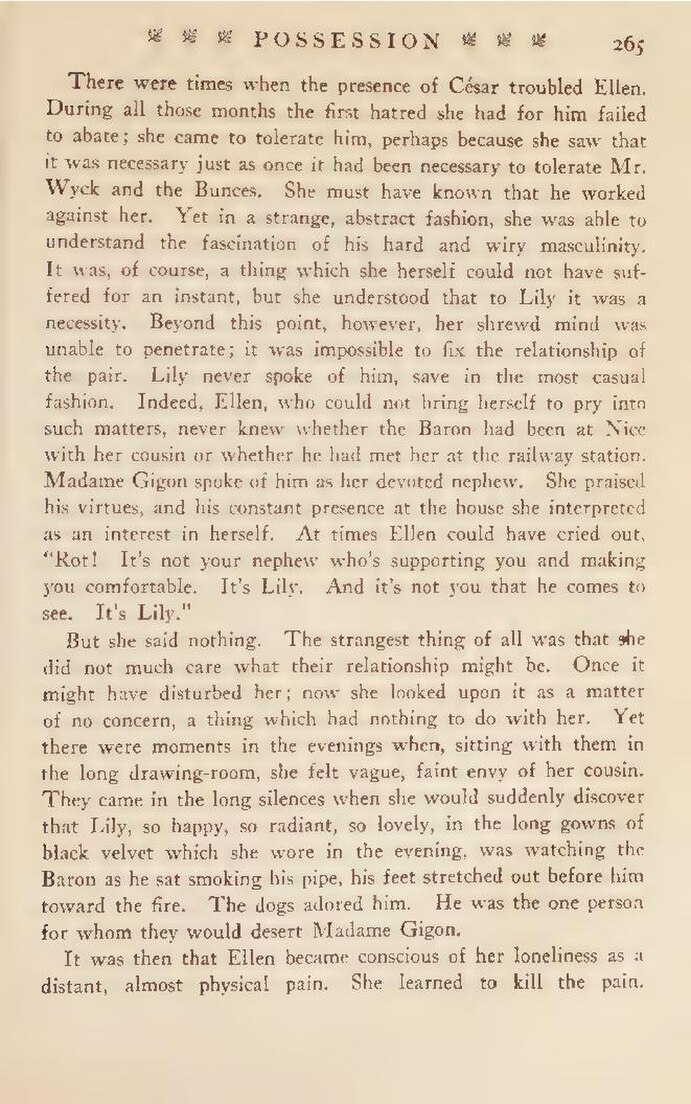There were times when the presence of César troubled Ellen. During all those months the first hatred she had for him failed to abate; she came to tolerate him, perhaps because she saw that it was necessary just as once it had been necessary to tolerate Mr. Wyck and the Bunces. She must have known that he worked against her. Yet in a strange, abstract fashion, she was able to understand the fascination of his hard and wiry masculinity. It was, of course, a thing which she herself could not have suffered for an instant, but she understood that to Lily it was a necessity. Beyond this point, however, her shrewd mind was unable to penetrate; it was impossible to fix the relationship of the pair. Lily never spoke of him, save in the most casual fashion. Indeed, Ellen, who could not bring herself to pry into such matters, never knew whether the Baron had been at Nice with her cousin or whether he had met her at the railway station. Madame Gigon spoke of him as her devoted nephew. She praised his virtues, and his constant presence at the house she interpreted as an interest in herself. At times Ellen could have cried out, "Rot! It's not your nephew who's supporting you and making you comfortable. It's Lily. And it's not you that he comes to see. It's Lily."
But she said nothing. The strangest thing of all was that she did not much care what their relationship might be. Once it might have disturbed her; now she looked upon it as a matter of no concern, a thing which had nothing to do with her. Yet there were moments in the evenings when, sitting with them in the long drawing-room, she felt vague, faint envy of her cousin. They came in the long silences when she would suddenly discover that Lily, so happy, so radiant, so lovely, in the long gowns of black velvet which she wore in the evening, was watching the Baron as he sat smoking his pipe, his feet stretched out before him toward the fire. The dogs adored him. He was the one person for whom they would desert Madame Gigon.
It was then that Ellen became conscious of her loneliness as a distant, almost physical pain. She learned to kill the pain.
